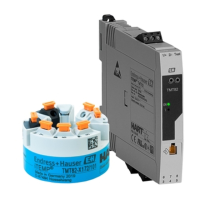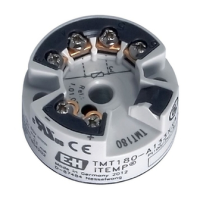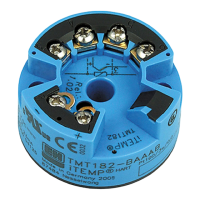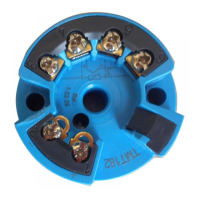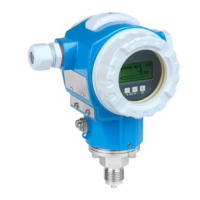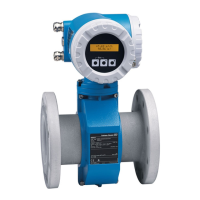DRAFT
DRAFT DRAFT DRAFT DRAFT DRAFT DRAFT
DRAFT DRAFT DRAFT
iTEMP TMT71/72 Electrical connection
5 Electrical connection
5.1 Connection conditions
L
CAUTION
Switch off the power supply before installing or connecting the device. Failure to
observe this may result in the destruction of parts of the electronics.
When connecting Ex-certified devices, please take special note of the instructions and
connection schematics in the Ex-specific supplement to these Operating Instructions.
Your supplier is available for assistance if required.
Do not occupy the display connection. An incorrect connection can destroy the
Do not overtighten the screw terminals, as this could damage the transmitter. Use a
Maximum torque for securing screws = 1 Nm (¾ foot-pound), screwdriver: Pozidriv Z2
Maximum torque for screw terminals = 0.35 Nm (¼ foot-pound), screwdriver: Pozidriv
Proceed as follows to wire a mounted head transmitter:
1. Open the cable gland and the housing cover on the terminal head or the field
2. Feed the cables through the opening in the cable gland.
3. Connect the cables as shown in → 15.
4. Tighten the cable gland again and close the housing cover.
In order to avoid connection errors always follow the instructions in the post-connection
check section before commissioning!
Sensor input
RTD, ! : 4-, 3- and 2-wire
Bus connection
and supply voltage
1
1
2
2
Display connection/
service interface
A0036348-EN
6 Terminal assignment of head transmitter
To operate the device via the HART
®
protocol (terminals 1 and 2), a minimum load of 250
Ω is required in the signal circuit.
Endress+Hauser V. 1, Rev. 2, 4-10-2018 15
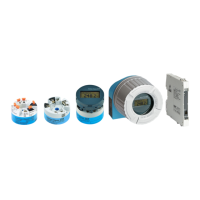
